Recursivity and Contingency
Media Philosophy
Series Editors:
Eleni Ikoniadou, Senior Tutor (Research) in Visual Communication at the Royal College of Art;
Scott Wilson, Professor of Cultural Theory at the London Graduate School and the School of Performance and Screen Studies, Kingston University.
The Media Philosophy series seeks to transform thinking about media by inciting a turn towards accounting for their autonomy and eventness, for machine agency, and for the new modalities of thought and experience that they enable. The series showcases the transcontinental work of established and emerging thinkers whose work engages with questions about the reshuffling of subjectivity, of temporality, of perceptions and of relations vis--vis computation, automation, and digitalization as the current twenty-first-century conditions of life and thought. The books in this series understand media as a vehicle for transformation, as affective, unpredictable, and non-linear, and move past its consistent misconception as pure matter-of-fact actuality.
For Media Philosophy, it is not simply a question of bringing philosophy to bear on an area usually considered an object of sociological or historical concern, but of looking at how developments in media and technology pose profound questions for philosophy and conceptions of knowledge, being, intelligence, information, the body, aesthetics, war, death. At the same time, media and philosophy are not viewed as reducible to each other's internal concerns and constraints and thus it is never merely a matter of formulating a philosophy of the media; rather the series creates a space for the reciprocal contagion of ideas between the disciplines and the generation of new mutations from their transversals. With their affects cutting across creative processes, ethico-aesthetic experimentations and biotechnological assemblages, the unfolding media events of our age provide different points of intervention for thought, necessarily embedded as ever in the medium of its technical support, to continually re-invent itself and the world.
The new automatism is worthless in itself if it is not put to the service of a powerful, obscure, condensed will to art, aspiring to deploy itself through involuntary movements which none the less do not restrict it. Eleni Ikoniadou and Scott Wilson
Titles in the Series
Software Theory , by Federica Frabetti
Media after Kittler , edited by Eleni Ikoniadou and Scott Wilson
Chronopoetics: The Temporal Being and Operativity of Technological Media , by Wolfgang Ernst, translated by Anthony Enns
The Changing Face of Alterity: Communication, Technology and Other Subjects , edited by David J. Gunkel, Ciro Marcondes Filho, and Dieter Mersch
Technotopia: A Media Genealogy of Net Cultures , by Clemens Apprich, translated by Aileen Derieg
Contingent Computation: Abstraction, Experience, and Indeterminacy in Computational Aesthetics , by M. Beatrice Fazi
Recursivity and Contingency , by Yuk Hui
Sound Pressure: How Speaker Systems Influence, Manipulate and Torture , by Toby Heys (forthcoming)
Media Arts in the XXI Century: Archaeologies, Theories, Preservation , by Valentino Catrical, translated by Arabella Ciampi (forthcoming)
Recursivity and Contingency
Yuk Hui

London New York
Published by Rowman & Littlefield International Ltd.
6 Tinworth Street, London SE11 5AL, United Kingdom
www.rowmaninternational.com
Rowman & Littlefield International Ltd. is an affiliate of Rowman & Littlefield
4501 Forbes Boulevard, Suite 200, Lanham, Maryland 20706, USA
With additional offices in Boulder, New York, Toronto (Canada), and Plymouth (UK)
www.rowman.com
Copyright 2019 by Yuk Hui
All rights reserved . No part of this book may be reproduced in any form or by any electronic or mechanical means, including information storage and retrieval systems, without written permission from the publisher, except by a reviewer who may quote passages in a review.
British Library Cataloguing in Publication Data
A catalogue record for this book is available from the British Library
ISBN: HB 978-1-78660-052-3
PB 978-1-78660-053-0
Library of Congress Cataloging-in-Publication Data Available
ISBN: 978-1-78660-052-3 (cloth : alk. paper)
ISBN: 978-1-78660-053-0 (pbk. : alk. paper)
ISBN: 978-1-78660-054-7 (electronic)
 The paper used in this publication meets the minimum requirements of American National Standard for Information SciencesPermanence of Paper for Printed Library Materials, ANSI/NISO Z39.48-1992.
The paper used in this publication meets the minimum requirements of American National Standard for Information SciencesPermanence of Paper for Printed Library Materials, ANSI/NISO Z39.48-1992.
Printed in the United States of America
For Julien
One can regard the history of the human species in the large as the completion of a hidden plan of nature to bring about an inwardly and, to this end, also an externally perfect state constitution, as the only condition in which it can fully develop all its predispositions in humanity.
Immanuel Kant, Idea for a Universal History with a Cosmopolitan Aim
It might very well still take a considerable time to recognize that the organism and the organic present themselves as the mechanistic- technological triumph of modernity over the domain of growth, nature.
Martin Heidegger, GA94 Ponderings XIIX
Contents
Ever since I was a computer engineering student at the University of Hong Kong, the concept of recursion has appeared to me as something almost magical. With recursion in mind, a complex phenomenon or process can be reduced to several lines of code with a strange form of looping. Upon completing On the Existence of Digital Objects , I was convinced that the way to develop a philosophical inquiry into algorithms was to approach it in terms of the notion of recursivity. The current writing project began in 2013 and has undergone several transformations during the course of its development. My research on the concept of recursivity led me to undertake a reconstruction of its position in philosophy and the role of contingency in the recursive genesis. Through the concepts of recursivity and contingency, I have attempted to outline a historical trajectory of the concept of the organic since Immanuel Kants Critique of Judgment , covering the philosophy of nature, organicism, cybernetics, systems theory, organology, and ecology. At times this book may appear to be a historical-critical exposition of the subject, but I would not want to pretend that it is a work of history. It is first and foremost a study in the philosophy of technology. It aims to provide a critical analysis of Martin Heideggers assertion that cybernetics marks the historical culmination of metaphysics and the end of philosophy, and suggests ways of moving beyond the current technological paradigm toward what I call a multiple cosmotechnics .
The current book is the third in a series reflecting on the philosophy of technology, a series that has followed a sequence from objects to cosmos to systems. It is also an attempt to address two major questions that I left unanswered in the previous two books: first, the Kantian category of relation that I promised to deal with in On the Existence of Digital Objects , and second, the notion of organicism that Joseph Needham developed in relation to his studies of Chinese thought of science and technology, which I touched upon but did not elaborate further in The Question Concerning Technology in China . In this respect, this book could have been titled Specters of Needham .
I terminated this book during a difficult moment of life, when academic precarity and health issues had to become the quasi causes of its completion. I want to thank Howard Caygill, to whom I once promised a book on Kant, for the preface and encouragement; as well as friends and colleagues who have read and commented upon various drafts of chapters of this book, in particular Pieter Lemmens, Michel Crevoisier, Brian Kuan Wood, Paul Willemarck, Charles Wolfe, Kirill Chepurin, Martijn Buijs, Louis Morelle, Harry Halpin, Armin Schneider, and Damian Veal, who decided to leave this world soon after he helped edit the first version of the current work and to whom this book is forever in debt. I also want to thank the series editors and the editorial team of Rowman & Littlefield International for having taken care of this book. Lastly I want to express my gratitude to the support of my family and friends over the past years, in particular Matthew Fuller, Bernard Stiegler, and Johnson Chang.
Next page
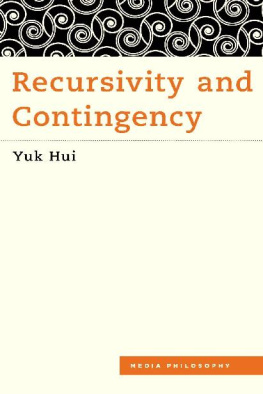

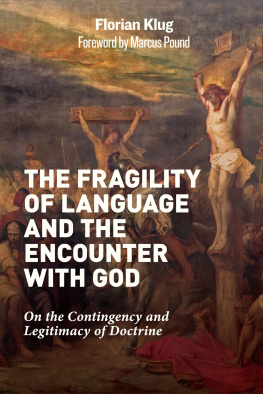
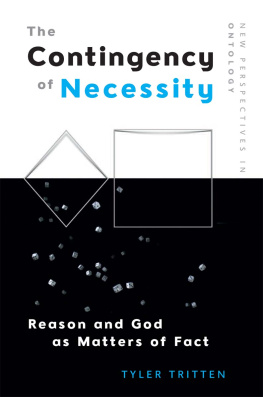
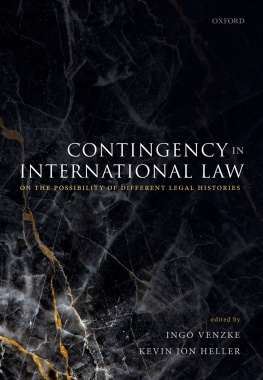
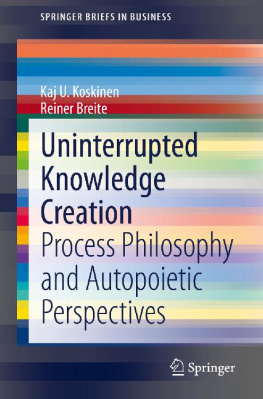
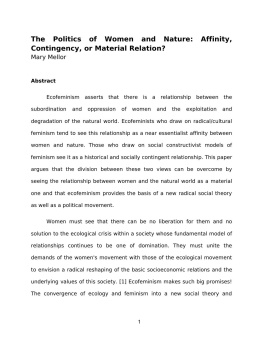
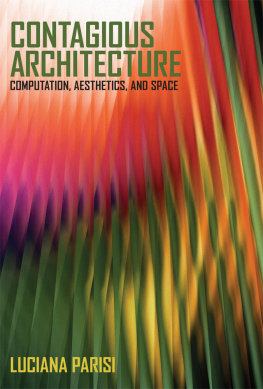
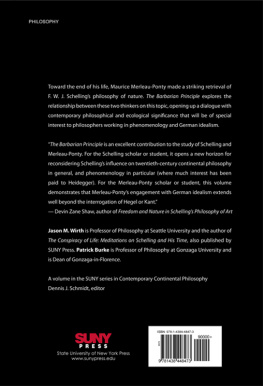


 The paper used in this publication meets the minimum requirements of American National Standard for Information SciencesPermanence of Paper for Printed Library Materials, ANSI/NISO Z39.48-1992.
The paper used in this publication meets the minimum requirements of American National Standard for Information SciencesPermanence of Paper for Printed Library Materials, ANSI/NISO Z39.48-1992.